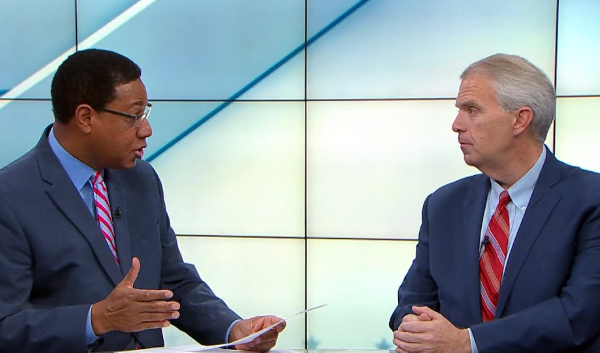There is a lot of discussion in the industry right now about improving the quality of local TV news. (Full disclosure: RTDNA researcher Bob Papper and I produced a report on the state and future of local TV news with funding from the Knight Foundation.) Most of the solutions center around producing more enterprise or investigative reporting or focusing on accuracy and building audience trust. Those ideas make a lot of sense, but so does this: Pay your new hires better.
According to the latest data from the National Association of Colleges and Employers, the Class of 2018 communications graduates were the only group at the bachelor’s degree level who were projected to earn a lower starting salary than did their 2017 counterparts — and they were already the lowest paid of all the disciplines that the organization tracks. Their overall average starting salary projection? $51,448.
But wait…$51K doesn’t sound too bad, right? Now, consider that RTNDA’s Papper reports that the average starting salary for a local TV news reporter in 2018 was $29,300. So, a college grad with all of the skills needed to get hired as a news reporter has to take a 43% pay cut to help preserve democracy and give Americans the information they need to live their lives. That’s just wrong.
Case in point: One of the most sought after May graduates from the j-school at the University of Mississippi was a stellar newscast producer. She had local stations trying to hire her sight unseen over the phone. She was offered salaries in the mid-30s, but because she had great multimedia skills, including video shooting and editing, she also got an offer to work for a public school system in Texas with a starting salary at more than $60K per year. That’s right, a public school system is paying more for talented journalists than local newsrooms.
And you know what? She felt guilty; she apologized profusely to her mentors, but at the end of the day, she had to pay off her student loans and think about where and how she wants to live. She’s still doing important work but in the job she chose, she’ll also be paid fairly for what she does.
For too long, local TV news has been capitalizing on the fact that journalism is an exciting and rewarding profession. And yes, there’s plenty of research that indicates money is not the only thing that matters in the hiring process, and as TV journalists move up in market size, their salaries can increase pretty quickly.
But more and more often, from my vantage point in the journalism employee pipeline, the profession is losing top candidates who are bright and capable and may be just what local TV news needs to figure out the future. Of course, paying more is easier said than done, but the bright and capable folks already working in local news can probably figure out how to make it happen, if they believe it’s the right thing to do.
Responses welcome.
Deb Wenger, a 17-year broadcast news veteran, is an assistant dean and professor who oversees undergraduate studies in journalism at the University of Mississippi. Prior to her academic appointments, Wenger worked as a reporter, producer and newsroom manager within multiple TV stations, including WFLA (Tampa, FL), WSOC (Charlotte, NC) and WMUR (Manchester, NH). Wenger is executive editor of NewsLab.org and co-editor of AdvancingTheStory.com. Wenger is a trainer for SPJ in association with its Google News Initiative program. She is also co-author of two books, Advancing the Story: Quality Journalism in a Digital World and Managing Today’s News Media: Audience First.









1 Comment
“and as TV journalists move up in market size, their salaries can increase pretty quickly.” That was once true, however the new workaround for most major station groups is hiring people with next to no experience in Top 50, even Top 30 or Top 20 markets, and paying them just above poverty wages, so even market size isn’t going to be a cure-all in a television newsroom.